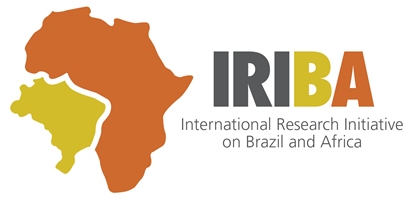The highly regarded Brazilian business newspaper Valor Economico recently published an article focussed on the findings of our working paper ‘Taxation, Redistribution and the Social Contract in Brazil‘.
Here’s a pdf of the article in Portuguese. An English translation follows.
Increased tax burden was the basis for expansion of social assistance finds study
Brazil has had a significant and continuous increase in the tax burden in the last 20 years. High levels of collection underpin the funding that enabled the country to expand social policies and promote inclusion in the period, and it is this combination that helps explain an intriguing phenomenon for observers: the fact that tax increases have not provoked the dissatisfaction of society until recently.
This question was the starting point for a study led by the University of Manchester on relations between the Brazilian tax system and the model of economic growth that the country has developed. The study is part of ‘Brazil For Africa’, a programme funded by the British government that aims to study different facets of the Brazilian economy in search of approaches that could be replicated in Africa.
“Democratisation in 1989 comes with growing pressure from society for social policies and redistribution,” explains Marcus André Melo, professor at the Federal University of Pernambuco and one of those responsible for the research on tax.
It’s what the study called the Brazilian “social contract”: rising taxation was tacitly accepted by the population in return for rising social spending. “Brazil’s tax burden is clearly a point outside the curve of similar income countries, but it was essential for the economic development model of the country,” he says. “Brazil taxes too much and spends too much, with high redistribution. It is a Scandinavian balance.”
In Scandinavian countries, where the tax reaches 55% of the Gross Domestic Product (GDP), social indicators and the return on welfare are well ahead of those in Brazil. Complaints about levels of tax were one of the main reasons for the demonstrations of 2013. But the tax burden comes from long before.
From 1995 to 2010, the period covered by the study, there was a jump of seven points, from 27% to 34% of GDP. Today, it hovers around 37%, while the average for Latin America is 20%. According to researchers, social advancement was impressive and that’s what fuelled this “contract” for two decades.
It’s not just direct distribution policy, such as Bolsa Família at play. The 1988 Constitution established the Brazilian state assistance framework, which includes a universal free health system, free education and social assistance.
Only social assistance, which includes spending on pensions, allowances and unemployment benefits accounts for about 10 points of the 37% tax burden.
“Other countries, such as China and Chile, have a lower tax burden than that of Brazil, but they don’t provide a public pension,” says Everardo Maciel consultant, secretary of revenue during the Cardoso government. For the Chileans, the taxes account for 20% of GDP and, for the Chinese, 17%. “The tax burden is the size of the expenditure, and the size of the latter is the result of a choice made by society.”
The economist Amir Khair, executive secretary of municipal finance to Mayor Luiza Erundina in São Paulo, also points out that much of the increase in revenues came from the vigorous growth of last decade. “The taxes are directly related to the economic activity. When the country grows it reduces unemployment, people have greater disposable incomes, companies have more profits.”
On the other hand, the slowing economy is a factor identified by experts as responsible for exhaustion of the model. Without growth, revenue falls and with it the ability to continue supporting the social system. And why has the demand for social support appeared as stronger in Brazil than in other countries that also democratised and revised their constitutions at the same time?
According to Melo, coordinator of the study, the answer involves the degree of income distribution, considering that Brazil left the era of military rule as one of the most unequal countries in the world “second only to Sierra Leone.”
“The military brought development, but there was a wage squeeze and inequality rose sharply, then the democratisation process in Brazil was accompanied by strong demands in this direction,” says the professor. “Not only by the need to deconcentrate income to the level of other countries, but because inequality creates policy distortions.”
This is what political science, explains Melo, who holds a PhD from the University of Sussex (UK), studies through the “median voter theorem”: even with an income level similar to that of its peers, inequality meant that Brazil had a greater proportion of very poor, which made the population naturally more dependent on the state.
Since the return of democracy, elections created politicians who needed votes and approval of the majority. The social agenda ended up winning huge support, in response to the desire of the majority of voters.
On the other hand, a country with greater equality and fewer poor people explains the exhaustion of the model and changes in tone of public demands. The tax system, however, has shortcomings. The main one is the effect that public policies have on distribution. As the proportion of indirect taxes levied on products is greater than direct taxes on income, the burden ends up being proportionately greater for the poor, who have little income and use it fully for consumption. In 2008, while the poorest 10% paid 32% of their income on taxes, the richest 10% paid only 21% of theirs.
“There are two ways of doing redistributive policy: on the spending side and via the tax system. We have a system that is regressive and inefficient, but that reliably generates revenue,” says Melo. “We’ve ended up creating this schizophrenic situation in which the government makes great effort to invest in social assistance, but does not try to reduce inequality through taxation.”
Read the working paper, ‘Taxation, Redistribution and the Social Contract in Brazil’.
